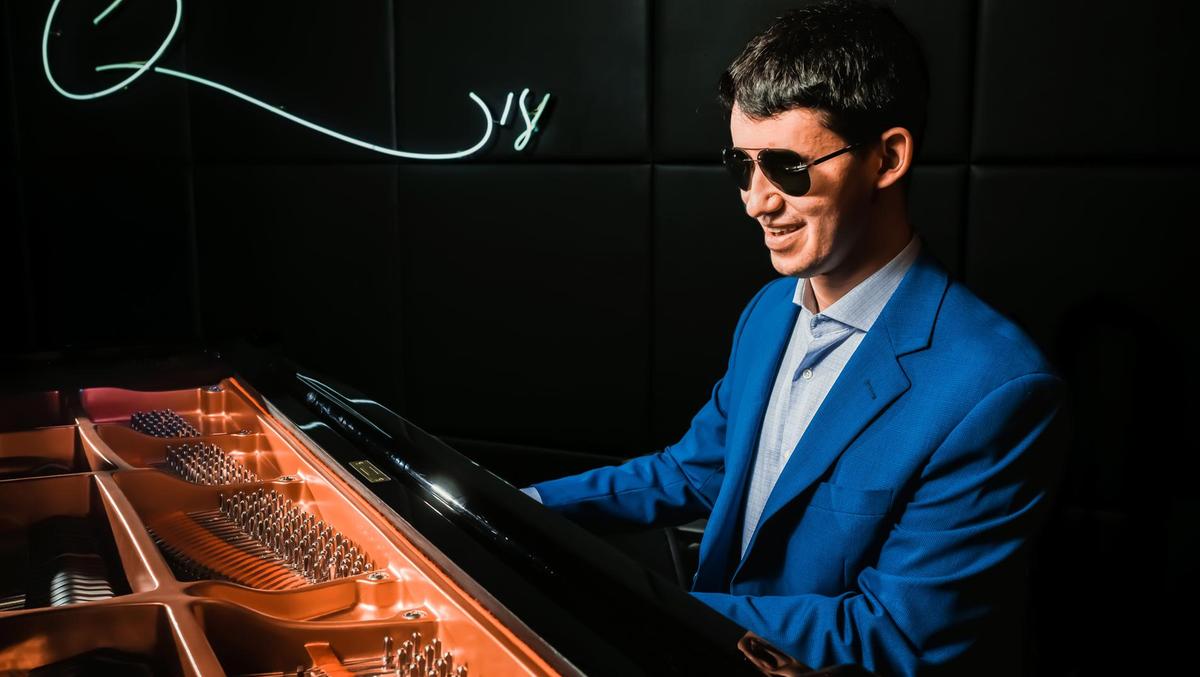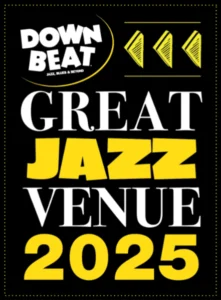Justin Kauflin
The Justin Kauflin Quartet played at the club on 2/22/19 and 2/23/19

Justin Kauflin is an award-winning American jazz pianist, composer, producer, educator, and Quincy Jones Artist. He won the VSA International Young Soloist Award and voted as “Jazz Artist of the Year” in VEER magazine.
How did you come to play the piano?
I was always drawn to the piano as a small child. We had a piano at the house, but I was low vision and my parents weren’t able to find a piano teacher that was comfortable working with a low vision student, so my first instrument was actually the violin, and I studied the Suzuki Method. When I was nine, we did find a teacher, and it was classical, of course.
It wasn't until I lost my sight that the piano became kind of the center of what I wanted to do.
I enjoyed it, but it wasn’t until I lost my sight when I was 11 that the piano became kind of the center of what I wanted to do. I spend more time at it, and I began to love it so much more. It’s worked out so far.
You are being presented by Quincy Jones. How did that relationship happen?
Quincy and I share a teacher — the legendary Clark Terry. Quincy studied with Clark when he was 12 years old. I met Clark maybe in 2005. Then, I think it was 2011, I was down visiting Clark to spend time with him and to get some lessons, and this trip coincided with Quincy also coming to Clark’s place and visiting his teacher. He didn’t know anything about us — me or my buddies.
But he came to visit, and I got to meet him. Clark says, “Hey, Quincy. Have you heard this little blind piano player?” I got to spend a day with Quincy, which I thought was amazing. And then, after that visit, he graciously allowed me to join his roster of artists. I’ve been with him for the last five years.
"Have you heard this little blind piano player?"
How did you go from classical to jazz?
I was very fortunate, first of all, to get admitted to this art program in Virginia called the Governor’s School for the Performing Arts. They have a very small jazz program. In this jazz program, they had wonderful teachers. I knew nothing about jazz, and they took me by the hand and showed me what it was all about. Once I figured out the mechanics and how jazz works, I immediately fell in love. This was just the music for me for sure.
What are your thoughts on the future of jazz?
I’m always hopeful. People tend to be a lot more negative than I think is necessary. Jazz has always been a very creative art, and there’s no shortage of creativity these days. It’s become so much more diverse. There’s so many more avenues for young musicians to pursue.
It’s always had sort of a smaller niche audience. It’s pretty steady, and I think it’s important to realize that. It might be a smaller, but it’s very dedicated audience. I mean, come on; that’s what it’s about. We’re here to create.
What do you think about the club?
Oh man, this place is great. It has a wonderful energy. The Steinway B over there is magnificent. It’s one of the most responsive instruments I’ve played.
And the audience was amazing. That’s a hometown audience for sure. We really appreciate that. That makes the band play better. We’re happy to be here.



